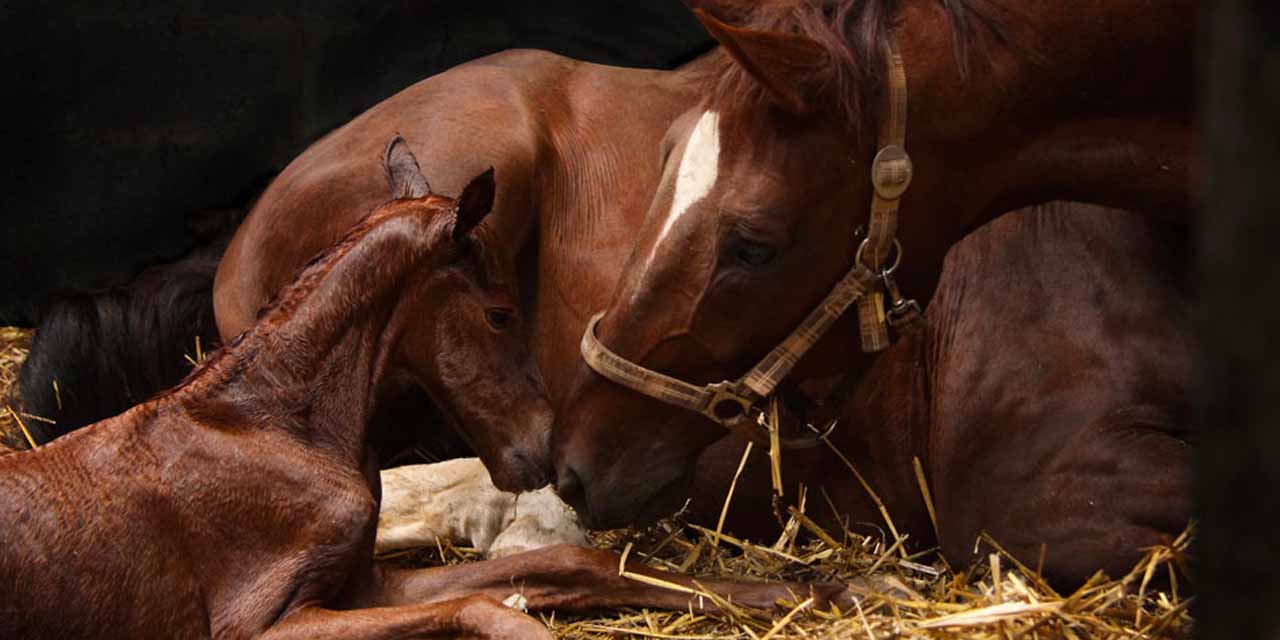The Neonate
Normal, healthy foals should be able to sit up and hold themselves on their chest within two to five minutes of birth. They should have a good sucking reflex within 20 to 30 minutes, be able to stand within two hours and be capable of nursing from the mare within two to four hours. Foals must receive colostrum from the mare to provide antibodies to fight infection and glucose for nutrition and energy. Following nursing, they should pass meconium (the hard, brown/yellow first faeces), urinate, lie down and sleep. Foals that are woken should be alert and curious, standing without hesitation and seeking the teat.
Within five minutes of birth, the foal¹s heart rate should be 80-120 beats per minute, respiration rate should be 30-40 breaths per minute and lips and gums should be pale pink. Rectal temperature should be between 37.2 and 38.6° Celsius, usually at the lower end of this range immediately after birth and rising slowly to plateau at about four days.
Foals that are delivered from mares with placentitis or those which have undergone a prolonged, difficult or a mal-presentation foaling are at high risk of being deprived of oxygen during the delivery. The lack of oxygen results in damage to the foal’s organs and tissues including the brain, lungs, digestive tract and immune system. This tissue damage and its effects on the foal are referred to as Hypoxic-Ischaemic Syndrome (HIS) or Neonatal Maladjustment Syndrome (NMS). These foals were previously referred to as “Dummy Foals” due to the variety of neurological signs they exhibited. However, ongoing research has demonstrated that the tissue damage is usually much more widespread than just the brain and requires therapy to support and treat a variety of conditions.
Research conducted at Scone Equine Hospital and around the world has shown that these foals benefit significantly from intensive care therapy as soon as possible after birth. Over many years, equine veterinarians have adapted advanced techniques from human neonatal care to the care of foals. These techniques include medical therapy, oxygen supplementation and intravenous fluid and nutrition.
Specialized neonatal intensive care results in significantly increased survival rates of sick foals and the foals which are discharged from hospital are likely to grow normally and are able to race successfully.
There are no guarantees in the racing world but the dedication and commitment of the people entrusted to care for our foals is a pretty safe bet.

